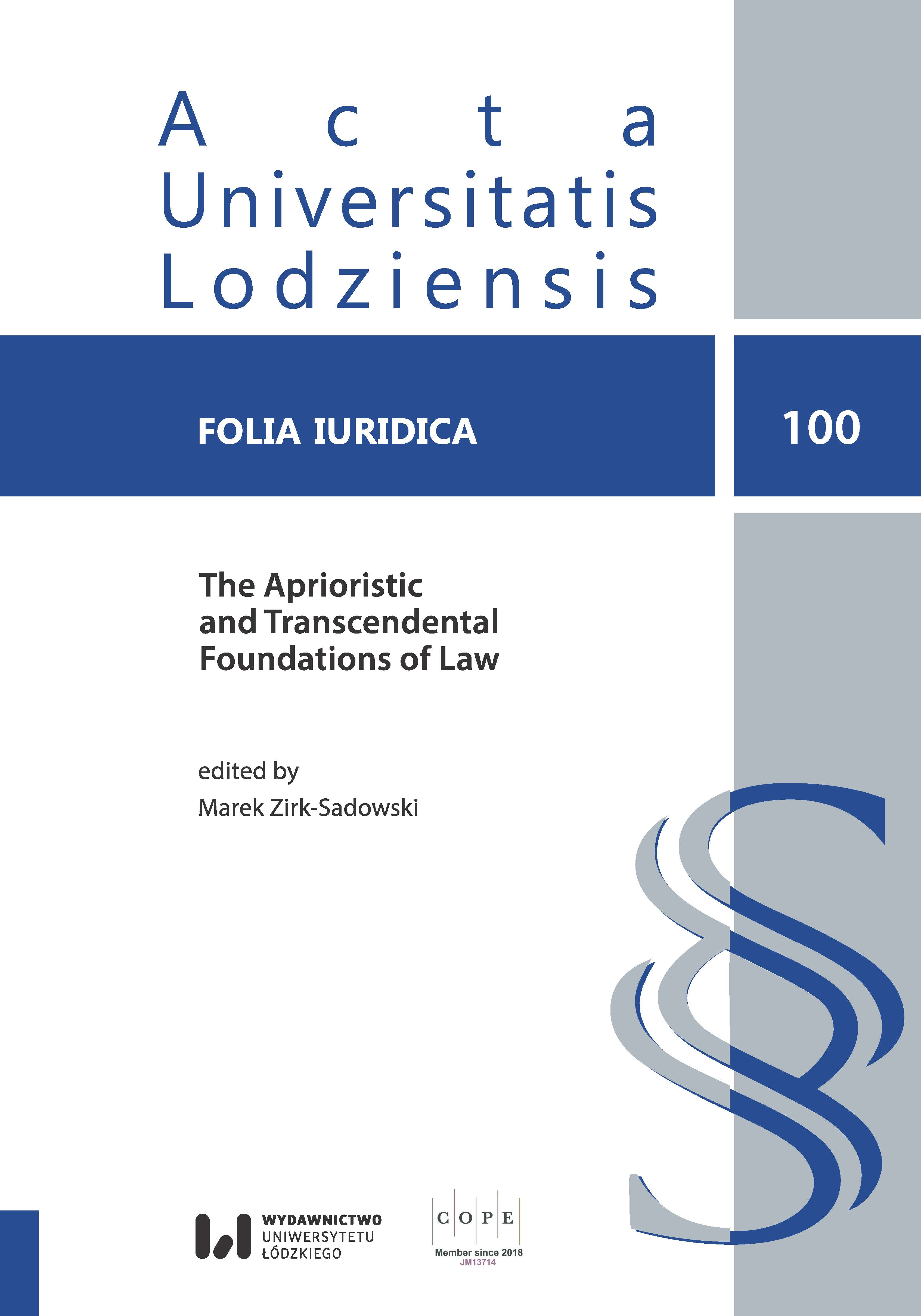Heurystyki prawnicze a pozytwizacja prawa w dyskursie dogmatycznym
DOI:
https://doi.org/10.18778/0208-6069.100.07Słowa kluczowe:
heurystyka prawnicza, dogmatyka prawa, pozytywizacja prawa, argumentacja prawniczaAbstrakt
Powszechna opinia, że tekst prawa nie wyznacza jego zastosowania prowadzi do zrozumienia roli dogmatyki prawniczej i praktyki orzeczniczej w rozwiązaniu tego problemu. Wspólne pole tematyczne obu obszarów działalności prawników pozwala wyodrębnić dyskurs dogmatyczny, w którym prawo jest pozytywizowane poprzez utrwalanie stosowalnych (operatywnych) wzorów rozwiązywania problemów prawnych. Wzory te powstają przez odwołania do tekstowości, językowości prawa i systemowości prawa, ale również do historii samego dyskursu. Pozytywizacja prawa jest wynikiem określonych heurystyk prawnych, polegających na łączeniu znaczeń, oczekiwań, wartości i istniejących praktyk w rozwiązywaniu problemów prawnych. Heurystyka prawnicza nie sprowadza się do metody, jest raczej ramą, kontekstem i zespołem warunków poznania nakierowanego na rozwiązywanie praktycznych problemów.
Pobrania
Bibliografia
Aarnio, Aulis. 1984. “Paradigms in Legal Dogmatics.” In Theory of Legal Science. Edited by Aleksander Peczenik et al. 25–38. Dordrecht: Springer. https://doi.org/10.1007/978-94-009-6481-5_4
Google Scholar
DOI: https://doi.org/10.1007/978-94-009-6481-5_4
Alexy, Robert. 1993. “Justification and Application of Norms.” Ratio Juris 6(2): 157–170. https://doi.org/10.1111/j.1467-9337.1993.tb00144.x
Google Scholar
DOI: https://doi.org/10.1111/j.1467-9337.1993.tb00144.x
Atienza, Manuel. Juan Ruiz Manero. 1998. A Theory of Legal Sentences. Dordrecht: Kluwer Academic Publisher. https://doi.org/10.1007/978-94-007-0848-8
Google Scholar
DOI: https://doi.org/10.1007/978-94-007-0848-8
Broekman, Jan M. 1985. “The Minimum Content of Positivism. Positivism in the Law and in Legal Theory.” Rechtstheorie 16(4): 349–366.
Google Scholar
Gadamer, Hans-Georg. 2004. Truth and Method. London: Continuum.
Google Scholar
Günther, Klaus. 1989. “A Normative Conception of Coherence for a Discursive Theory of Legal Justification.” Ratio Juris 2(2): 155–166. https://doi.org/10.1111/j.1467-9337.1989.tb00034.x
Google Scholar
DOI: https://doi.org/10.1111/j.1467-9337.1989.tb00034.x
Hartman, Jan. 2011. Heurystyka filozoficzna. [Philosophical Heuristics]. Toruń: Wydawnictwo Naukowe Uniwersytetu Mikołaja Kopernika.
Google Scholar
Leszczyński, Jerzy. 2010. Pozytywizacja prawa w dyskursie dogmatycznym. [Positivisation of Law in Legal Dogmatic Discourse]. Kraków: Towarzystwo Autorów i Wydawców Prac Naukowych Universitas.
Google Scholar
Peczenik, Aleksander. 2005. Scientia Iuris. Legal Doctrine as Knowledge of Law and as a Source of Law. Dordrecht: Springer.
Google Scholar
Smits, Jan M. 2015. “What is Legal Doctrine? On the Aims nad Methods of Legal-Dogmatic Research.” Maastricht European Private Law Institute Working Papers 06: 207–228. https://doi.org/10.1017/9781316442906.006
Google Scholar
DOI: https://doi.org/10.1017/9781316442906.006
Tuori, Kaarlo. 2016. Critical Legal Positivism. New York: Routledge. https://doi.org/10.4324/9781315258867
Google Scholar
DOI: https://doi.org/10.4324/9781315258867
Ziembiński, Zygmunt. 1980. Podstawowe problemy prawoznawstwa. [Basic Problems of Jurisprudence]. Warszawa: Państwowe Wydawnictwo Naukowe.
Google Scholar
Zirk-Sadowski, Marek. 1998. Prawo a uczestniczenie w kulturze. [Law and Participation in Culture]. Łódź: Wydawnictwo Uniwersytetu Łódzkiego.
Google Scholar
Pobrania
Opublikowane
Jak cytować
Numer
Dział
Licencja

Utwór dostępny jest na licencji Creative Commons Uznanie autorstwa – Użycie niekomercyjne – Bez utworów zależnych 4.0 Międzynarodowe.














